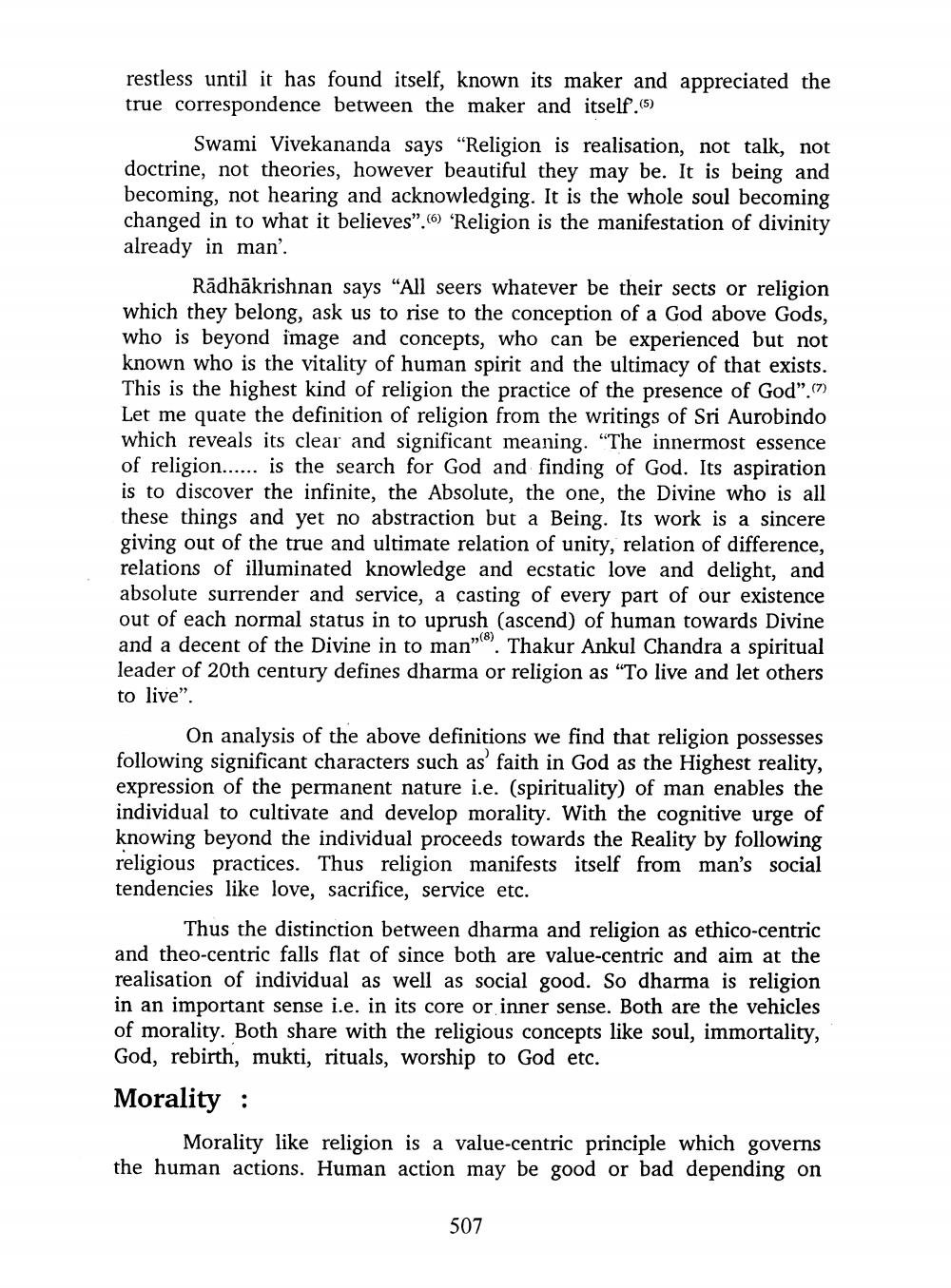________________
restless until it has found itself, known its maker and appreciated the true correspondence between the maker and itself.(5)
Swami Vivekananda says “Religion is realisation, not talk, not doctrine, not theories, however beautiful they may be. It is being and becoming, not hearing and acknowledging. It is the whole soul becoming changed in to what it believes”.6) (Religion is the manifestation of divinity already in man'.
Rādhākrishnan says "All seers whatever be their sects or religion which they belong, ask us to rise to the conception of a God above Gods, who is beyond image and concepts, who can be experienced but not known who is the vitality of human spirit and the ultimacy of that exists. This is the highest kind of religion the practice of the presence of God".() Let me quate the definition of religion from the writings of Sri Aurobindo which reveals its clear and significant meaning. "The innermost essence of religion...... is the search for God and finding of God. Its aspiration is to discover the infinite, the Absolute, the one, the Divine who is all these things and yet no abstraction but a Being. Its work is a sincere giving out of the true and ultimate relation of unity, relation of difference, relations of illuminated knowledge and ecstatic love and delight, and absolute surrender and service, a casting of every part of our existence out of each normal status in to uprush (ascend) of human towards Divine and a decent of the Divine in to man”. Thakur Ankul Chandra a spiritual leader of 20th century defines dharma or religion as "To live and let others to live".
On analysis of the above definitions we find that religion possesses following significant characters such as faith in God as the Highest reality, expression of the permanent nature i.e. (spirituality) of man enables the individual to cultivate and develop morality. With the cognitive urge of knowing beyond the individual proceeds towards the Reality by following religious practices. Thus religion manifests itself from man's social tendencies like love, sacrifice, service etc.
Thus the distinction between dharma and religion as ethico-centric and theo-centric falls flat of since both are value-centric and aim at the realisation of individual as well as social good. So dharma is religion in an important sense i.e. in its core or inner sense. Both are the vehicles of morality. Both share with the religious concepts like soul, immortality, God, rebirth, mukti, rituals, worship to God etc. Morality :
Morality like religion is a value-centric principle which governs the human actions. Human action may be good or bad depending on
507




